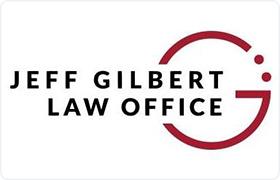Damon Divorce & Family Law Lawyer, Texas
Sponsored Law Firm
-
 x
x

Click For More Info:
-
Jeff Gilbert Law Office
108 E. Magnolia Street Angleton, TX 77515» view mapDivorce & Family Law Protecting Your Future
Our Angleton family law attorneys are committed to providing personalized, compassionate attention while advocating for the best interests of your family.
800-932-4121
Jeffrey R. Gilbert
✓ VERIFIED *Status is reviewed annually. For latest information visit hereDivorce & Family Law, Criminal, Wills & Probate, Mediation, Juvenile Law
A native of Angleton, Texas in Brazoria County, Jeff Gilbert is a 6th generation Texan with deep roots to his community. Graduating from Angleton High... (more)
Julia Leigh Dean
✓ VERIFIED *Status is reviewed annually. For latest information visit hereEstate, Wills & Probate, Elder Law, Guardianships & Conservatorships, Trusts
Ms. Dean's professional experience encompasses a broad range of legal matters. Her primary emphases are estate planning, elder law, and probate. Her e... (more)
Eric T. Furey
Wills & Probate, Family Law, Corporate, Mesothelioma
Status: In Good Standing *Status is reviewed annually. For latest information visit here
Faye Gordon
Elder Law, Criminal, Family Law, Estate Planning, Wills
Status: In Good Standing *Status is reviewed annually. For latest information visit here
Erinn G. Brown
Family Law, Animal Bite, Child Support, Estate Planning
Status: In Good Standing *Status is reviewed annually. For latest information visit here
FREE CONSULTATION
CONTACTMichelle A. Stover
Real Estate, Divorce & Family Law, Criminal
Status: In Good Standing *Status is reviewed annually. For latest information visit here
Scott M. Brown
Family Law, Divorce, Divorce & Family Law, Criminal
Status: In Good Standing *Status is reviewed annually. For latest information visit here
Thad T. Davis
Alimony & Spousal Support, Corporate, Child Support, Children's Rights, Tax
Status: In Good Standing *Status is reviewed annually. For latest information visit here
FREE CONSULTATION
CONTACTHall Wesley Griggs
Credit & Debt, Elder Law, Family Law, Oil & Gas, Litigation
Status: In Good Standing *Status is reviewed annually. For latest information visit here Licensed: 52 Years
Fred Eugene Wilson
Consumer Bankruptcy, Credit & Debt, Family Law, Wills & Probate
Status: In Good Standing *Status is reviewed annually. For latest information visit here Licensed: 37 Years
 Jeff Gilbert Angleton, TX
Jeff Gilbert Angleton, TX Practice AreasExpertise
Practice AreasExpertise

